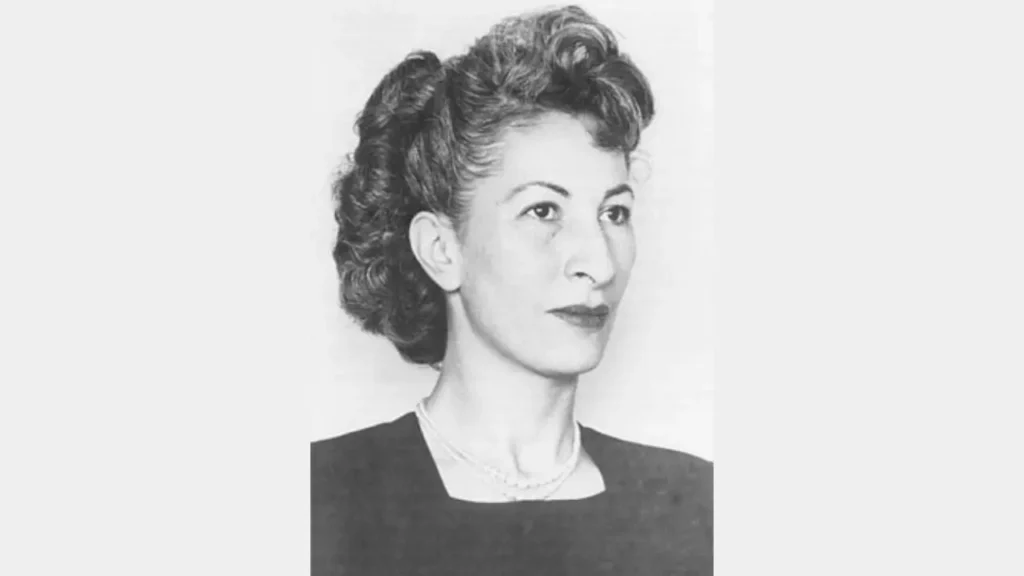In the annals of labor history, there are figures whose contributions echo through time, shaping the course of rights and social justice. Among these luminaries stands Luisa Moreno, a formidable force in the fight for labor rights during the 20th century. This article delves into the life, impact, and enduring legacy of this remarkable activist.
Who Was Luisa Moreno?
Born Blanca Rosa Lopez Rodriguez in Guatemala in 1907, she later adopted the pseudonym Luisa Moreno to shield her family from reprisals for her activism. Moreno’s journey traversed continents, embodying the struggles and aspirations of migrant workers in the United States.
Early Activism and Organizing Efforts
Luisa Moreno‘s activism ignited during her early years in Guatemala, where she witnessed the plight of laborers and the injustices perpetrated by exploitative working conditions. Her fervor for social justice led her to join the struggles of banana plantation workers, where she organized strikes and advocated for fair wages and improved working conditions.
Migration to The United States
In the 1920s, Moreno migrated to the United States, settling in New York City. Here, she became immersed in the vibrant tapestry of activism, engaging with diverse communities and lending her voice to various causes.
Championing Latino Workers’ Rights
Moreno’s activism focused prominently on Latino workers, advocating for their rights amidst systemic discrimination and exploitation. She played a pivotal role in organizing labor unions, empowering Latino workers to assert their rights and demand better treatment.
Role in the Civil Rights Movement
Luisa Moreno‘s advocacy extended beyond labor rights to encompass broader social justice issues. She forged alliances with prominent civil rights leaders, recognizing the interconnectedness of struggles against racial and economic oppression.
Landmark Achievements
Moreno’s legacy is underscored by her numerous achievements in advancing labor rights and social justice. Notably, she played a key role in securing rights for maritime workers and was instrumental in the establishment of the Congress of Spanish-Speaking Peoples, a pioneering organization advocating for Latino rights.
Legacy and Impact
Luisa Moreno‘s indomitable spirit and tireless advocacy continue to inspire generations of activists. Her unwavering commitment to justice and equity serves as a beacon of hope in the ongoing struggle for labor rights and social justice.
Conclusion
In the annals of history, Luisa Moreno‘s name shines brightly as a testament to the power of grassroots activism and unwavering dedication to social justice. Her legacy serves as a reminder of the profound impact individuals can have in shaping a more equitable world.
Unique FAQs
1. What were some of Luisa Moreno’s most significant achievements?
Luisa Moreno played a pivotal role in championing Latino workers’ rights, organizing labor unions, and advocating for fair treatment and better working conditions. She also contributed to the establishment of the Congress of Spanish-Speaking Peoples, a pioneering organization in the fight for Latino rights.
2. How did Luisa Moreno’s activism extend beyond labor rights?
While Moreno’s activism was rooted in labor rights, she also engaged in broader social justice issues. She forged alliances with civil rights leaders and advocated for racial and economic equality, recognizing the interconnectedness of various struggles against oppression.
3. What challenges did Luisa Moreno face during her activism?
Throughout her activism, Moreno faced numerous challenges, including systemic discrimination, threats of violence, and legal persecution. Despite these obstacles, she remained steadfast in her commitment to justice and equity.
4. How did Luisa Moreno’s background influence her activism?
Born in Guatemala, Moreno witnessed firsthand the injustices faced by laborers, which fueled her passion for social justice. Her experiences navigating different cultural contexts informed her advocacy, particularly in championing the rights of Latino workers in the United States.
5. What is Luisa Moreno’s enduring legacy?
Luisa Moreno‘s legacy endures as a testament to the transformative power of grassroots activism and the pursuit of social justice. Her life serves as an inspiration to future generations of activists striving to create a more equitable and inclusive society.

